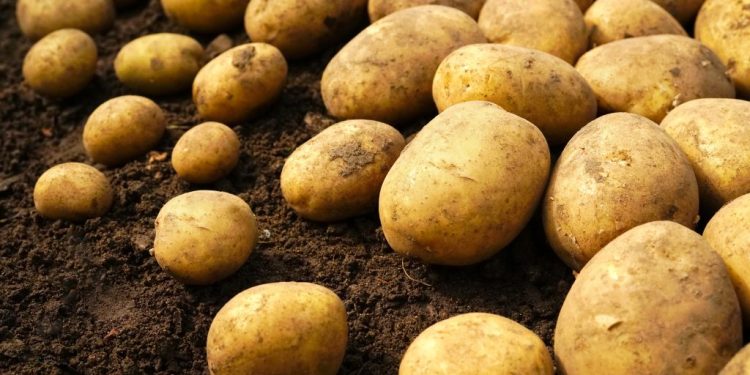#PotatoResearch #GeneticTechniques #CropImprovement #AgriculturalInnovation #FoodSecurity #SustainableAgriculture
Learn how scientists are using genetic techniques to optimize potato breeding by identifying and removing harmful genes, leading to the development of improved potato varieties with enhanced traits and increased resistance to diseases and pests. Explore the process behind this groundbreaking research and the potential consequences it may have for agriculture and food production.
In a remarkable breakthrough for potato breeding, scientists have successfully identified and removed harmful genes from potato plants, paving the way for the development of superior potato varieties. This innovative genetic technique aims to optimize potato cultivation, improve crop yield, and enhance the overall quality of this widely consumed staple food.
Traditionally, potato breeding has relied on selective breeding methods, which involve crossing different potato varieties and selecting offspring with desirable traits. However, this process is time-consuming and often limited by the presence of undesirable genes that may negatively impact the crop’s productivity and susceptibility to diseases.
To overcome these challenges, scientists have turned to advanced genetic techniques to expedite the breeding process and produce potatoes with improved characteristics. By identifying and eliminating harmful genes, researchers can develop potato varieties that are more resistant to diseases, pests, and environmental stresses. This breakthrough not only benefits farmers but also has significant implications for global food security.
The process begins with analyzing the potato’s genome, which contains a vast amount of genetic information. By employing sophisticated molecular techniques, scientists can pinpoint specific genes associated with detrimental traits, such as susceptibility to certain diseases or poor nutritional value. Once these genes are identified, they can be selectively edited or removed using tools like CRISPR-Cas9, a revolutionary gene-editing technology.
Through this approach, scientists can precisely modify the potato’s genetic code, eliminating harmful genes while preserving or enhancing desirable traits. This targeted editing allows for the creation of potatoes that are more disease-resistant, have improved nutritional profiles, and possess enhanced agronomic characteristics, such as better yield or increased tolerance to environmental conditions.
The development of potatoes with optimized genetic profiles has far-reaching consequences for agriculture and food production. Firstly, it enables farmers to cultivate more robust potato crops, reducing yield losses caused by diseases and pests. This, in turn, contributes to increased food production, helping to meet the growing global demand for nutritious and affordable food.
Additionally, the breeding of better potatoes can have positive implications for sustainable agriculture. By developing varieties that require fewer pesticides or are more tolerant to adverse environmental conditions, farmers can reduce the environmental impact of potato cultivation. This aligns with the broader goal of promoting eco-friendly and resource-efficient farming practices.
Furthermore, the enhanced nutritional profile of these improved potato varieties can play a vital role in addressing malnutrition and improving public health. By breeding potatoes with higher levels of essential vitamins, minerals, and antioxidants, scientists can contribute to the development of more nutritious diets, especially in regions where potatoes are a dietary staple.
Scientists’ ability to weed out harmful genes in potato plants through genetic techniques represents a significant milestone in potato breeding. By optimizing the genetic profiles of potatoes, researchers are opening new avenues for sustainable agriculture, increased food production, and improved human health. As this field of research continues to advance, the future holds the promise of even better potato varieties with superior traits and resilience, benefiting farmers, consumers, and the global food system.







